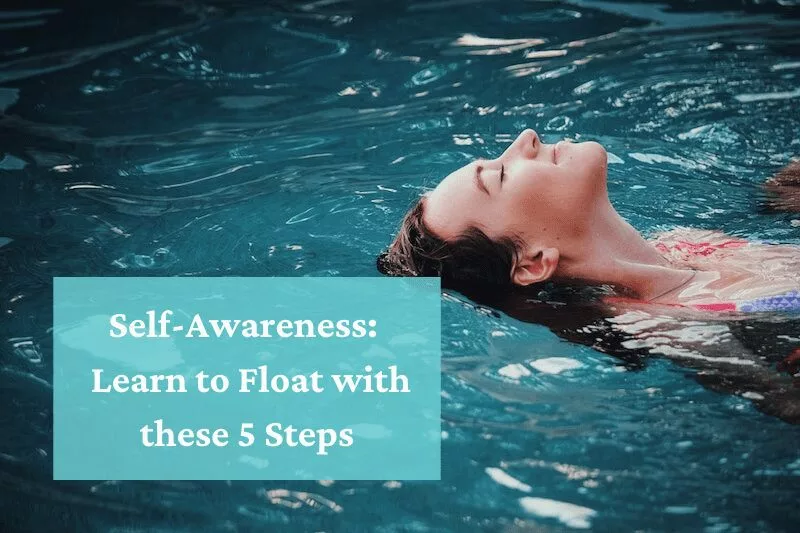
Leading the Way
There’s nothing quite like writing a blog about self-awareness to plunge you into the depths of your own being. At least now you’re reading it, so there are two of us swimming together. Don’t worry, I won’t take you too deep, but maybe grab your floaties, just in case.
Self-awareness is essential on your journey to self-improvement. Self-awareness leads people to understand when an opportunity is a good fit and how to make appropriate decisions for success according to Psychology Today. It’s also a leading indicator for success at home and at work. More than 50 CEOs listed a lack of self-awareness as the biggest challenge to leadership potential in a recent Forbes article.
Let’s be real though; assessing your best and worst traits, defining your character, naming your feelings, admitting your motives and declaring your desires can be scary, overwhelming and quite possibly anxiety-inducing! (I told you to bring your floaties.)
It’s All About Balance
Very Well Mind shares there are two types of self-awareness: public and private. In public self-awareness, we are cognizant of how we appear to others and it likely influences us to conform to social norms. However, this is also the arena anxiety can creep in. Are you prone to “foot in the mouth” disorder? Ever feel like everyone’s looking at you as if you have TP stuck to the bottom of your shoe? Do you overthink every social interaction until you want to throw up? Chances are you’ve been in one of those situations at some point in your life. The good news is you are already on your way to better self-awareness. You just might need some help balancing your yin and yang to control the anxiety overdrive.
Develop Good Habits reports people with good self-awareness skills have an easier time understanding others and are able to detect how others perceive them in return. Being able to articulate your motivations, beliefs, strengths and weaknesses will lead you to better pinpoint your passions, emotions and goals. Basically, being self-aware helps you understand your “why” which will lead you to your “how” as you make your way through life’s journey. Self-awareness and core values play hand-in-hand guiding your daily decisions. We wrote about core values last month – be sure to check it out.
Take Our Advice
Let’s get to the “how” of developing self-awareness. Every article linked has tips to developing and enhancing self-awareness. Below is a list of the top pieces of often-repeated advice.
- Write it down – yes, we’ve covered this before in our blog about goals. It seems journaling or writing in general, is a recommended step for many self-improvement objectives. Write down your traits (good and bad), your motivations (what makes you tick?), your reactions to various situations (being applauded, embarrassed or criticized), your proudest moments and your least-want-to-remember moments…all of this writing will lead to a more objective view of yourself hopefully.
- Take feedback – the good, the bad and the ugly. If you’re brave enough you can actually ask colleagues and friends to tell you what they see as your strengths and weaknesses. Implement practices and procedures to receive feedback on a regular basis.
- Be mindful – take time to self-reflect daily. Be present as much as possible (don’t cloud your mind with things left to do as you finish a current task). Learn meditation skills.
- Listen well – take in what others are saying and understand what they mean. Ask questions and seek answers through the experience of others.
- Hit the pavement – as your feet wander so does your mind. Exercise opens up pathways in your brain for inner communication. Walk (or run, or bike) and listen (to nature, your inner voice, traffic) and allow your biggest concerns to work their way into smaller, more manageable nuggets you can tackle. You’ll learn a lot about yourself during these self-dialogue sessions.
Yes, the path to better self-awareness requires courage and dedication. There will be days you can handle jumping in with both feet and other days dipping a toe in the pool will feel too difficult. That’s all okay. This is a journey, not a race. Before you know it, you’ll easily go from diving to the bottom to floating on the surface without undue anxiety in either position.


